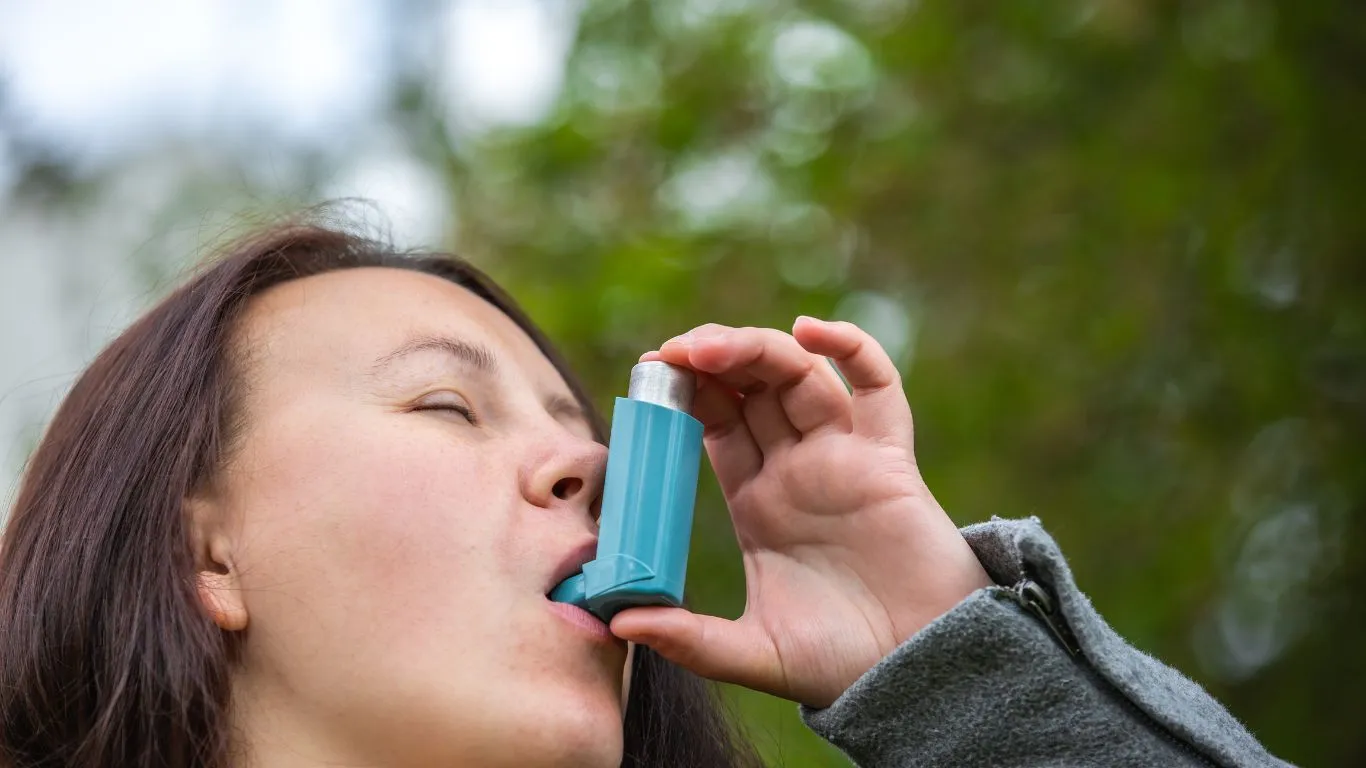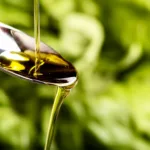Best Herbs for Asthma Relief: A Comprehensive Guide
Are you looking for natural ways to ease asthma symptoms? Herbs can offer some relief, helping you manage your asthma more effectively. Let’s dive into some of the best herbs for asthma relief and how they work to support respiratory health!
Asthma is a chronic condition that affects millions of people worldwide, making it difficult to breathe due to inflamed airways. While conventional medications are often necessary, many people seek alternative or complementary approaches, including herbal remedies, to alleviate symptoms. Certain herbs have been shown to help with inflammation, open airways, and reduce bronchial spasms. In this article, we’ll explore the best herbs for asthma relief and how they can support your respiratory system.

How Herbal Remedies Can Aid Asthma Relief
Before jumping into the specific herbs, it’s important to understand how herbal remedies work for asthma. Many herbs contain active compounds that have anti-inflammatory, anti-spasmodic, and bronchodilator effects. These compounds can help reduce airway inflammation, ease bronchial constriction, and improve airflow. While herbs should not replace prescribed medication, they can be used alongside other treatments to enhance overall asthma management.
Best Herbs for Asthma Relief
Let’s take a look at the most popular and effective herbs for asthma relief. These herbs are commonly used in traditional medicine and are backed by scientific research to support their role in managing asthma symptoms.
1. Lobelia (Lobelia inflata)
Lobelia is often referred to as “Indian tobacco” and is considered a powerful herb for asthma relief. It contains an active compound called lobeline, which acts as a bronchodilator. This helps to open the airways, making it easier to breathe during an asthma attack. Lobelia is also known for its anti-inflammatory properties, which can reduce the swelling in the airways, providing additional relief for asthma sufferers.
However, it’s important to use lobelia in moderation, as it can be toxic in large doses. Always consult with a healthcare professional before using lobelia.

2. Ginger (Zingiber officale)
Ginger is another powerful herb with numerous health benefits, including asthma relief. It contains bioactive compounds such as gingerol and shogaol, which have anti-inflammatory and antioxidant effects. These compounds can help reduce airway inflammation and prevent the constriction of bronchial muscles.
Research suggests that ginger may also enhance the effectiveness of certain asthma medications. Adding ginger to your diet or drinking ginger tea regularly may help improve respiratory health and reduce asthma symptoms over time.
3. Turmeric (Curcuma longa)
Turmeric, often hailed as a “superfood,” is well-known for its potent anti-inflammatory properties. The active compound in turmeric, curcumin, helps reduce inflammation in the airways, making it easier to breathe for people with asthma. Curcumin has also been shown to reduce oxidative stress, which is linked to the exacerbation of asthma symptoms.
Consuming turmeric as a spice in your food or taking turmeric supplements can help support lung health and reduce asthma symptoms. For best results, turmeric is often combined with black pepper, which increases the absorption of curcumin.
4. Eucalyptus (Eucalyptus globulus)
Eucalyptus is commonly used in essential oil form to treat respiratory conditions, including asthma. The essential oil contains eucalyptol, a compound known for its ability to open the airways and reduce inflammation. Eucalyptus oil can be used in steam inhalations, diffusers, or chest rubs to help clear mucus, reduce coughing, and improve airflow.
Inhaling eucalyptus vapor or using eucalyptus oil in a warm bath may provide immediate relief during an asthma attack or as a preventive measure.
5. Mullein (Verbascum thapsus)
Mullein is a well-known herb for respiratory health. It has been traditionally used to treat conditions like asthma, bronchitis, and coughs. The leaves and flowers of the mullein plant contain saponins, which can help soothe irritated airways, reduce inflammation, and loosen mucus. Mullein tea or mullein tincture is often recommended to help ease asthma symptoms.
Mullein is considered safe for most people, but it’s always a good idea to consult with a healthcare professional before starting any new herbal remedy.

6. Peppermint (Mentha piperita)
Peppermint is a refreshing herb that has long been used to relieve respiratory symptoms. The active compound menthol, found in peppermint, acts as a natural decongestant, helping to open the airways and improve breathing. It also has a mild relaxing effect on the muscles surrounding the airways, making it easier to breathe.
Peppermint tea, peppermint oil, or simply inhaling the vapor from peppermint oil can help reduce asthma symptoms and provide relief during an attack.
7. Thyme (Thymus vulgaris)
Thyme is another herb that has shown promise in treating asthma. It contains compounds like thymol, which has both anti-inflammatory and antimicrobial properties. Thyme can help reduce inflammation in the airways and prevent infection, which is crucial for people with asthma who may experience respiratory infections that worsen symptoms.
Thyme can be consumed as a tea or used in steam inhalation to relieve asthma symptoms and support lung health.
How to Use Herbs for Asthma Relief
There are several ways you can incorporate these herbs into your asthma management routine:
- Herbal Teas: Many of the herbs mentioned, like ginger, thyme, and mullein, can be brewed into teas. Drinking these teas regularly can help reduce inflammation and soothe the respiratory tract.
- Essential Oils: Eucalyptus and peppermint oils can be used in diffusers, steam inhalations, or applied to the chest as a topical rub (diluted with a carrier oil).
- Supplements: Some herbs, such as turmeric, ginger, and lobelia, are available in supplement form. These may be easier for people who want a more concentrated dose of the herb.
- Tinctures: Herbal tinctures are concentrated liquid extracts of herbs that can be taken in small doses. Mullein and lobelia tinctures are popular choices for asthma relief.
Always start with small doses and consult your healthcare provider, especially if you are currently on asthma medications, as herbs may interact with them.
Conclusion
Herbs can be a powerful tool in managing asthma and alleviating symptoms, but they should not replace your prescribed asthma medication. Herbs like lobelia, ginger, turmeric, and eucalyptus can offer natural support to ease inflammation, open airways, and improve overall respiratory health. Always consult with a healthcare professional before adding any herbs to your routine, and use them alongside conventional treatments for the best results.

Appendices
References
- National Institutes of Health (NIH). (2023). Herbal Remedies for Respiratory Health. Read Article
- American Lung Association. (2024). Managing Asthma with Natural Remedies. Read Article
- Smith, J., & Johnson, L. (2022). The Role of Herbs in Asthma Treatment. Journal of Herbal Medicine, 45(3), 120-128. Read Article
FAQs
- Can I rely on herbs alone to manage my asthma? While herbs can help with asthma symptoms, they should not replace prescribed asthma medications. Always follow your doctor’s advice.
- Is it safe to use herbs alongside asthma medication? Most herbs are safe when used in moderation, but it’s important to consult with your healthcare provider before combining herbal remedies with asthma medications.
- How quickly can I see results from herbal remedies for asthma? Results vary from person to person. Some people may feel relief after a few days, while others may need to use the herbs for several weeks to see noticeable improvements.
- Can I use essential oils for asthma? Yes, essential oils like eucalyptus and peppermint can help open the airways and relieve congestion. However, be cautious about using them if you have sensitivities to scents.
- Are there any side effects of using herbs for asthma? Most herbs are safe when used as directed, but some may cause side effects, such as nausea or allergic reactions. Always start with a small dose and monitor for any adverse effects.
Disclaimer: The information provided in this article is for educational purposes only and does not substitute for professional medical advice. Always consult your doctor or healthcare provider before starting any new treatment, including herbal remedies, for asthma.












